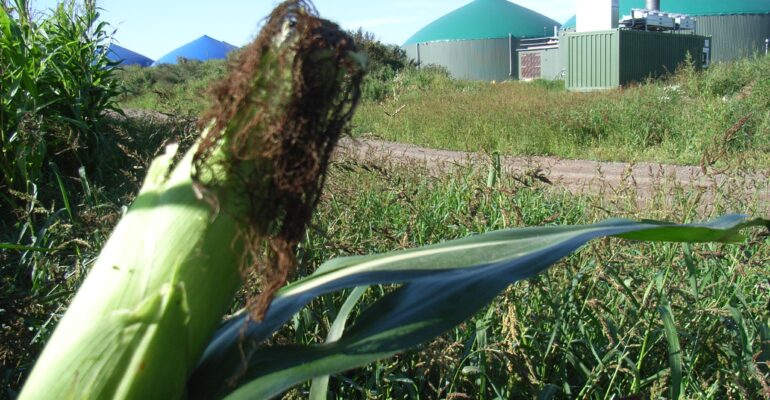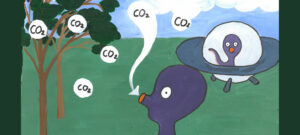Is the EU about to re-run the biofuels disaster with biogas?
By Kenneth Richter, Bioenergy consultant at BirdLife Europe & Central Asia
The Gas and Climate consortium (consortium of gas distribution companies and biogas associations arguing for more pipelines) has called on the EU to introduce a mandatory target of 10% renewable gas by 2030. It would seem astonishing to think that anybody would want a repeat of the EU biofuels disaster, this time with biogas, almost certainly threatening dire consequences for wildlife and climate.
“Renewable gas” refers to an upgraded form of biogas. Biogas, in a best case scenario, can be made from waste materials such as sewage and agricultural wastes, helping to treat sludge from farms. However the reality is different. Because the yields of gas from wastes are often quite low and not economically viable, biogas in Europe is largely made from purpose grown crops; primarily maize. An average-sized biogas facility requires 200 hectares of corn, and needs to be constantly fed.
This is leading to an unprecedented land grab, which competes with food production, in the same way growing crops for liquid transport biofuel does.
This is nowhere more obvious than in Germany. Already years ago, fuelled by subsidies for biogas production, maize was grown on over 800,000 hectares in Germany alone. This meant that for the first time in 25 years Germany couldn’t produce enough grain to meet its own food and feed needs.
At the same time the conversion of biodiversity-rich grasslands to maize fields has led to so called maize-deserts, void of almost any wildlife and prone to soil-erosion and worsening flood risks.
In Germany, evidence collected by BirdLife Partner NABU shows resulting widespread loss of grasslands and grassland birds such as Lapwing and Common Snipe, even in protected areas such as Natura 2000 sites.
The rate of biogas growth has also rapidly increased in other EU countries like the U.K. where the number of biogas plants doubled in just one year.
This is worrying not just for the environment, but also for livestock farmers: the feedstock demand from biogas plants has meant that feed prices have rocketed and in the UK the National Sheep Association has called for a rethink on biogas subsidies.
As the production of crops for biogas is competing with food production this leads to climate emissions from indirect land use change (ILUC) in the same way transport biofuel production does, which has already been widely shown to outweigh any of the potential climate benefits from replacing fossil fuels.
So rather than being a climate solution, large-scale biogas production from crops is quickly becoming another climate threat.
It would be foolish for the European Union to embark on another policy dead-end with a 10% biogas target, repeating all the same mistakes that were made with biofuels in the Renewable Directive, which eventually lead to an embarrassing policy U-turn.





